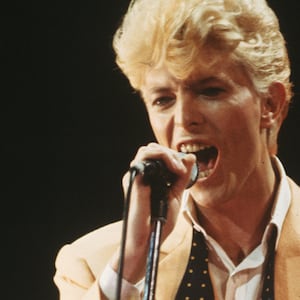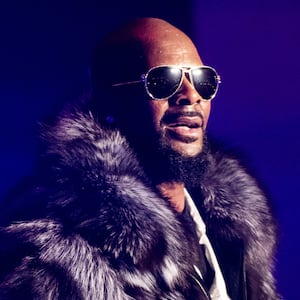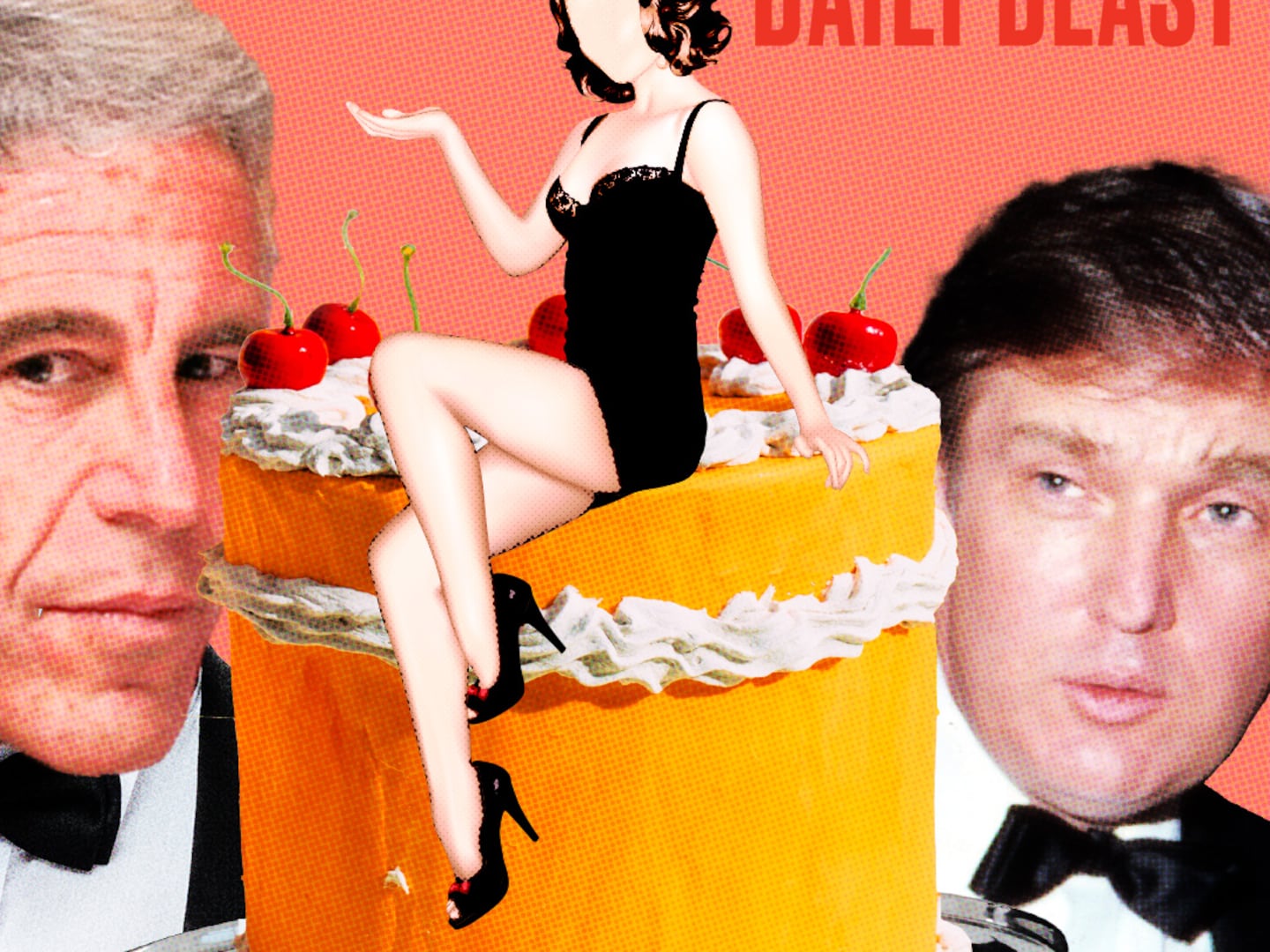Since the death of David Bowie on January 10th, fans and media have dissected much of his musical and cultural legacy. Bowie stands as a towering figure over the last 45 years of music, and as a celebrity famous for an ever-changing, enigmatic approach to his life and art, there is much to be analyzed in the wake of his passing. But not all of it is pleasant or even musical. One uncomfortable facet of the iconic rocker’s past has suddenly been thrust into the center of the dialogue, and it’s raised questions about both Bowie and the world that has enabled him and so many others.
The high-profile controversies surrounding contemporary stars like R. Kelly (who was famously accused of statutory rape and taken to court on child pornography charges in the early 2000s) and the backlash against rapper Tyga (following his relationship with a then-underage Kylie Jenner) have led to a broader discussion surrounding legal consent and adult male stars who engage in predatory behavior. And since his death, more fans and commentators have had to question Bowie’s own past with teen girls as well. In a Thrillist piece entitled, I Lost My Virginity To David Bowie: Confessions of a ‘70s Groupie, Lori Mattix recalls a sexual encounter with Bowie when she was only 14 years old.
“He focused his famously two-colored eyes on me and said, ‘Lori, darling, can you come with me?’” Mattix recalled. “He walked me through his bedroom and into the bathroom, where he dropped his kimono. He got into the tub, already filled with water, and asked me to wash him. Of course I did. Then he escorted me into the bedroom, gently took off my clothes, and de-virginized me.”
Rock star escapades from that period have been glamorized for decades with no regard for how disturbing or illegal the behavior was. It became a part of the mythos—a disgusting testament to how little the writers documenting the happenings of the day cared about taking their heroes to task. And it was right there in the music itself: The Rolling Stones sang about underage girls in “Stray Cat Blues” and Chuck Berry glorified the teenage “groupie” in “Sweet Little Sixteen” a decade earlier. But we can’t look at it with those same eyes today—not if we are sincere about protecting victims and holding celebrities accountable.
It’s convenient to go after Tyga and R. Kelly when we see hashtags or trending stories, and their behavior warrants every bit of scrutiny and criticism it’s gotten. But we cannot write off the alarming behavior of superstars past just because they’re now older, greyer or in the case of Bowie, newly-departed. Because this behavior didn’t start with contemporary hip-hop and R&B acts.
In addition to her time with Bowie, Mattix was also statutory raped by Led Zeppelin guitarist Jimmy Page. In the book Hammer Of the Gods, former Zeppelin road manager Richard Cole claimed that the rocker tasked him with kidnapping the teen girl. He allegedly escorted her from a nightclub and thrust her into the back of Page’s limo with the warning of stay put or “I’ll have your head.” Page kept Mattix hidden for three years to avoid legal trouble.
Mattix still romanticizes her experiences with these very adult men (“It was magnificent. Can you believe it? It was just like right out of a story! Kidnapped, man, at 14!” she stated in Hammer Of the Gods) but there is no doubt that what both Page and Bowie did was unacceptable. That it was glamorized in magazines like Creem and glossed over in films like Almost Famous speaks to cultural irresponsibility.
“Sweet Little Sixteen / She’s got the grown-up blues / Tight dresses and lipstick / She’s sportin’ high-heel shoes / Oh but tomorrow morning / She’ll have to change her trend / And be sweet sixteen / And back in class again.” – Chuck Berry (“Sweet Little Sixteen”)
So much of our culture turns a blind eye or gleefully endorses the hypersexualizing of teen girls. And when the stories are anecdotal as opposed to ripped from the headlines, it can be easy to dismiss and minimize the acts of artists like Bowie and Page as something “of the time.” But statutory rape laws existed even in the coke-fueled hedonism of the 1970s—because someone had to be protective of young girls who were susceptible to predators with big hair and loud guitars. But as it turns out, no one cared about protecting these girls; they were too busy mythologizing the rockers who were abusing them.
Early rock ‘n’ rollers Chuck Berry and Jerry Lee Lewis both saw their careers sullied by headlines involving underage girls: Lewis revealed that he was married to his 13-year-old cousin in 1958 and was subsequently blacklisted from radio, while Berry was arrested and found guilty of transporting an underage girl across state lines for immoral purposes, spending two years in jail in 1960.
Eagles drummer and vocalist Don Henley was arrested in 1980 in Los Angeles and charged with contributing to the delinquency of a minor after paramedics were called to his home to save a naked 16-year-old girl who was overdosing on cocaine and Quaaludes. He was fined $2,000, given two years' probation, and ordered into a drug counseling program. Rocker turned right-wing caricature Ted Nugent sought out underage girls, going so far as to become the legal guardian of Pele Massa when she was 17 just to be able to duck kidnapping charges.
Prince kept Anna Garcia, aka “Anna Fantastic,” with him at his Paisley Park compound when she was a teenager. She would ultimately become the subject of several of his late ‘80s/early ‘90s works, like “Vicki Waiting” and “Pink Cashmere,” which he wrote for Anna on her 18th birthday.
“I met him when I was 15, that was the first time I met him. And we just spoke and had a nice conversation and nothing else,” she told a Dutch interviewer in the ‘90s. “And then when I was 17, I bumped into him and that’s when we started a relationship, which was almost two years. I guess it’s kind of a dream to a young girl of 17. You can be influenced very easily and stuff like that because he’s 12-13 years older than me.”
Prince dated Mayte Garcia shortly thereafter, a dancer he met when she was 16. “When we met I was a virgin and had never been with anybody,” she told The Mirror last year. The two would marry in 1996, when Mayte was 22. Unlike Anna, Mayte insists Prince didn’t pursue her seriously until she was 18.

“I’d always been a very focused dancer and very protected,” she said. “Prince was my first crush, and my first love, but we didn’t start to get serious until I turned 18. He was very respectful.”
There have been varying stories surrounding the relationship between a young Aretha Franklin and the late Sam Cooke. She has indicated in interviews that things between them became romantic, but in his unauthorized biography, David Ritz indicated that their first encounter occurred when she was only 12 years old and visited Cooke in his motel room in Atlanta. In the Sam Cooke Legends television documentary, Aretha recalled an incident involving her being in Cooke’s room, but indicated that her father interrupted what was likely going to be a sexual encounter.
“We did run into Sam on the road. And one time in particular, we were all there in the hotel. And his room was only two doors away from my room. And the Staple Singers were right across the hall from him,” she said in the late ‘90s. “So I got dressed and went down and knocked on his door and sat there—he was not married at this time—I sat there on the side of the bed very innocuously. And we were just talking about the music industry and other artists and whatever else we were talking about and the door was closed. While we were talking, the conversation took another turn. [smirks] Read between the lines. And my dad was looking for me…at the same time, just as it took this ‘other turn.’ And we hear [him] ‘Aretha, I know you’re in there!’”
Marvin Gaye met Janis Hunter around the time of her 17th birthday, and the still-married Motown star pursued the teenager immediately. According to Hunter’s 2015 memoir After The Dance, Gaye took her to an Italian restaurant in Hollywood and bribed the waiter $20 to bring the underage girl apricot sours. He had sex with her shortly thereafter, and the two began a relationship, despite a 17-year age difference and the fact that Marvin was still legally married to his first wife, Anna Gordy. Gaye would famously write “Let’s Get It On” in tribute to his lust for Jan. Shortly after giving birth to a daughter, Nona, Jan and Marvin were featured in a November 1974 issue of Ebony when she was 18. They would marry in 1977, after Marvin’s divorce from Anna was finalized; but Janis would leave the singer in 1981.
We can dismiss all of this as just the “way things were back then.” We can pretend that we haven’t heard countless songs about young “Lolitas” who were “just seventeen—you know what I mean.” We can ignore the racial implications in the mainstream media’s relative silence on rockers’ histories of statutory rape and its glorification. But the next time you watch Almost Famous, take note of how much younger most of the Band Aids seem compared to the world-weary rockers that are repeatedly shown taking them to bed (Kate Hudson’s Penny Lane says she's 16 in the film). Note how the movie casually nods to Page and Mattix in a scene at the infamous Hyatt “Riot House” on Sunset Strip. And think about how many girls would’ve been better off had someone given a damn way back when, as opposed to just fawning over a guitarist with some hit songs.Former Rolling Stones bassist Bill Wyman infamously began seeing 13-year-old Mandy Smith in 1983. According to Smith, Wyman had sex with her when she was 14. They married when she turned 18 in 1989; they divorced in 1991. She spoke about her time with the ex-Stone in an interview with The Daily Mail in 2010.
“It’s not about being physically mature. It’s emotional maturity that matters,” she stated, after making it clear that she regrets what happened to her. “I don’t think most 16-year-olds are ready. I think the age of consent should be raised to 18 at a minimum, and some girls aren’t even ready then.”
“I know, I know. People will find that odd, coming from me,” she added. “But I think I do know what I’m talking about here. You are still a child, even at 16.”
“You can never get that part of your life, your childhood, back. I never could.”








